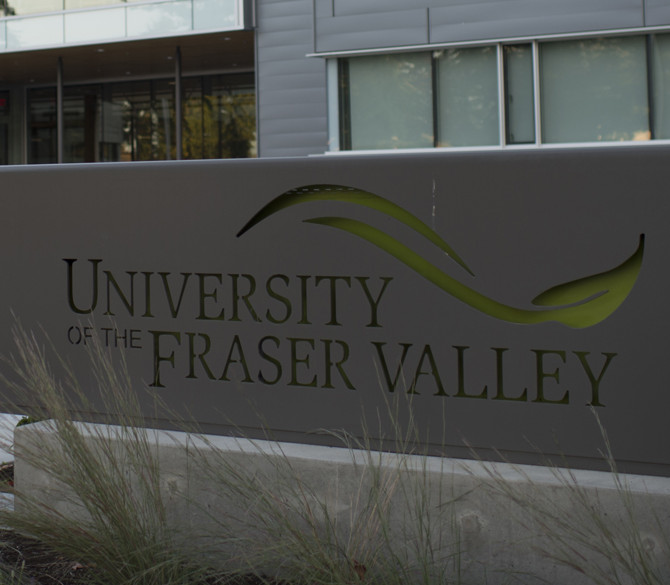By Katie Stobbart (The Cascade) – Email
Print Edition: March 18, 2015
While students are not literally making fiscal decisions or calling the administrative shots, UFV’s increased reliance on tuition means a focus on student needs and wants. In other words, students aren’t at the steering wheel, but they’re the GPS.
“Increasingly, our students are in charge,” said President Mark Evered at a budget forum to reveal and discuss UFV’s 2015-16 budget plan. The main focus of the March 12 and 13 forums at the Chilliwack and Abbotsford campuses were to offer a detailed map of the university’s revenue and expenses over the next year.
Revenue sources are shifting
UFV has three categories of funding: its provincial government grant, student tuition and fees, and miscellanious revenue.
At one time, the provincial grant provided the majority of funding, but is now close to par with student tuition. The grant, which has been decreasing each year, makes up 46 per cent of the total operating budget versus 39 per cent from tuition.
Tuition will be charged for ABE courses
BC universities used to receive a tuition compensation grant to offset the cost of offering adult basic education (ABE) courses so students could access them for free. That grant will no longer be offered; instead, the government will allow institutions to charge tuition for these courses.
Because of a tuition policy barring post-secondary institutions from raising the costs beyond inflation, UFV will be locked into whatever tuition they decide to charge. So they will charge the maximum amount they are allowed — about $160 per credit.
To offer partial relief to students, the university will apply an automatic bursary to those taking ABE courses which will decrease the student’s cost by $50 per credit.
Textbook sales decline
The budget accounts for a $300,000 dent in the sale of goods and services. Chief financial officer Jackie Hogan says this recognizes a reduction in textbook sales at the bookstore.
“This is not unique to UFV,” Hogan explains. “Students are savvy. They’re finding ways to purchase their textbooks online at cheaper prices or [from] other sources.”
Textbook rentals and e-books are among options UFV is exploring to adapt and “diversify.” Hogan adds that they are also looking at other ways ancillary services can contribute to the budget, like conferencing and event management.
Athletics get some TLC
The budget presentation lists a few initiatives related to athletics, campus recreation, and health. Hogan says the responsibility for Campus Rec will be centralized under UFV Athletics.
The university is also working with the Student Union Society (SUS) to develop and fund expanded recreation and wellness programming.
UFV is also working with other institutions to lobby for Canadian Interuniversity Sport (CIS) to improve scheduling to minimize travel costs for competitions.
Land sale hits speed bumps
Following the main presentation, Sukhi Brar, SUS’s VP external-elect, asked whether UFV’s intended sale of its land at the Chilliwack North campus would happen in the next year.
Evered said he hopes so, but explained that there have been delays in the process.
“The land has been available for a number of years now, but the negotiations are complex,” he said. “Although technically we own the land fee simple, we can’t do anything without government approval, and government approval includes addressing some First Nations issues.”
Evered added that selling the property is not the only option under consideration. Where a sale is a one-time source of revenue, developing the property can mean long-term revenue generation.
Currently, he said executive director of campus planning Craig Toews is seeking advice from SFU, UBC, and a few other universities trying to navigate the same territory.


